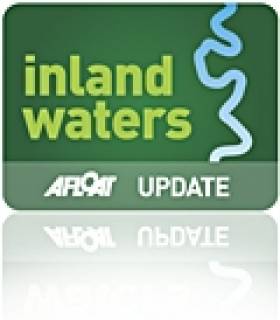Displaying items by tag: Newcomen Bridge
Royal Canal: Newcomen Bridge Lift Days and Times for 2024
Waterways Ireland advises arrangements have been made for Iarnród Éireann to open the lifting bridge at Newcomen Bridge on the Royal Canal in Dublin on the following dates and times, if there is demand:
- Sunday 5 May, 9am-1pm (Low water 16:00)
- Saturday 25 May, 9am-1pm (Low water 06:47)
- Tuesday 18 June, 11am-1pm (Low water 15:38)
- Tuesday 16 July, 11am-1pm (Low water 13:58)
- Friday 16 August, 11am-1pm (Low water 15:26)
- Friday 27 September, 11am-1pm (Low water 14:26)
Waterways Ireland’s Eastern Regional Office requires two weeks’ notice from boaters for use of these lifts (Tel: +353 1 868 0148 or [email protected]). Should there not be a demand (minimum two boats) for a particular date, Iarnród Éireann will be notified that the scheduled lift is cancelled.
A maximum number of boats passing will be implemented to keep to the times given above for the planned lifts (16 for the Saturday/Sunday lifts and eight for the weekday lifts). Priority will be given on a first come, first served basis.
On day of lift, boaters and passengers must follow guidance from Waterways Ireland staff about sequence of passage under the bridge and through Lock 1, the cross-border body for Ireland’s inland waterways adds.
Royal Canal: Newcomen Bridge Lift Dates For 2015
#InlandWaters - The schedule of lift dates 2015 for Newcomen Bridge on the Royal Canal in Dublin city centre runs from the end of April till the end of September.
Arrangements have been made for Irish Rail to open the bridge on the following dates and times, if there is demand:
Monday 27 April 11am–1pm
Sunday 3 May 9am–1pm
Saturday 30 May 9am–1pm
Thursday 11 June 11am–1pm
Thursday 9 July 11am–1pm
Thursday 23 July 11am–1pm
Monday 24 August 11am–1pm
Monday 21 September 11am–1pm
The Waterways Ireland Eastern Regional Office requires two weeks' notice from boaters for use of these lifts.
Should there not be demand (a minimum of two boats for passage) for a particular date, Irish Rail will be notified by Waterways Ireland that this lift is cancelled.
A maximum number of boats passing will be implemented to keep to the times given above for the planned lifts (16 for weekend lifts, eight for weekday lifts).
On day of lift, boaters and passengers must follow guidance from Waterways Ireland staff about sequence of passage under the bridge and through Lock 1, and must remain within signed and designated areas.
To give notice of any intended passage of Newcomen Bridge, contact the Eastern Regional Office at 01 868 0148 or [email protected]






























































